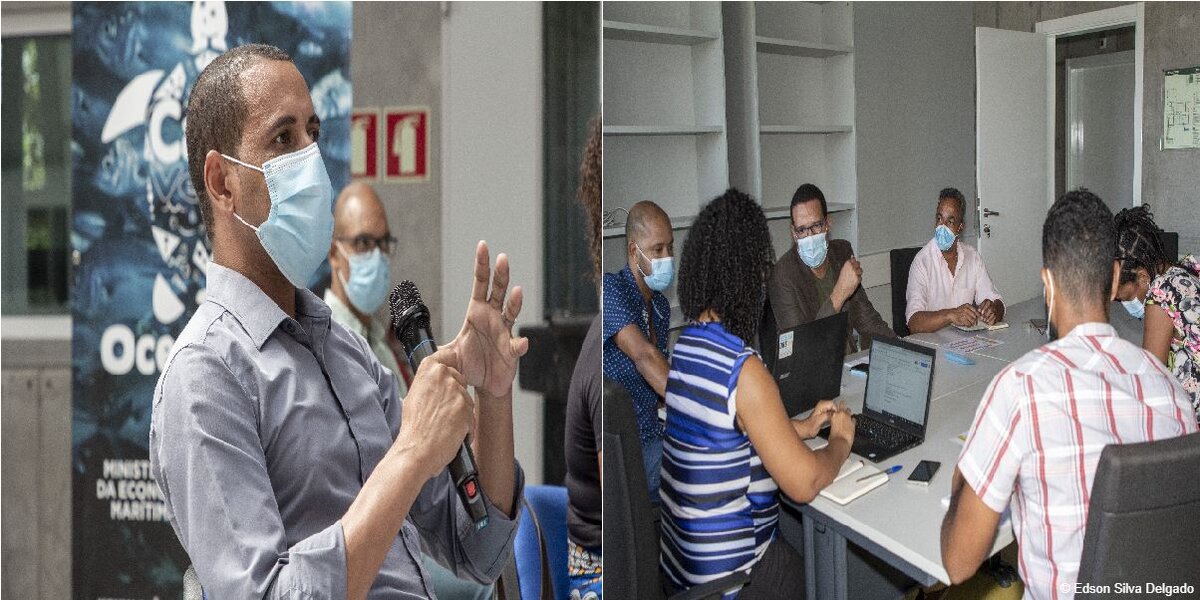
Kick-Off Workshop: Coastal Ecosystem Monitoring
During the hybrid Kick-Off meeting on 18 and 19 November 2020, the “Coastal Ecosystem Monitoring” (CEM_CV) project has started its’ first exchange with relevant stakeholders on elaborating a future ocean monitoring program. The main objective of this workshop was to outline and develop the study plan that is to be implemented within the framework of this project. The participants covered, besides the project partner organizations, various stakeholder groups from academic, research, governmental and non-governmental institutions, representing the fishery, conservation, tourism and industry sectors. The two-day workshop took place at the Ocean Science Centre Mindelo (OSCM) in Cabo Verde.
The CEM_CV project aims at developing standards for a coastal monitoring program in a region where no systematic ecosystem observations exist so far. This intends to improve local knowledge about the marine coastal environment and the biodiversity around Cabo Verde to support evidence based decision-making processes. An important aspect of the workshop was thus to start exchanging experiences in coastal and ocean monitoring. Therefore, researchers from Germany, the Azores and South Africa elaborated on their past involvements in monitoring programs and presented their approaches. The presentations also introduced technical devices as part of the monitoring implementation, as the use of computer applications on mobile devices to collect fishing data, monitor the rocky coastal environment, monitor coastal ecosystems and the effects of microplastic ingestion by fish.
In addition, synergies between the CEM_CV project and ELEVAR 2030 and Digital Twins of the Ocean were highlighted based on shared objectives. Lessons learned were exchanged in order to benefit from each other’s experiences. The discussion that followed focused mainly on the effects of marine pollution in the form of (micro-) plastics and the concern for its potential consequences on public health and ecosystems.
The second part of the workshop included a participatory exchange between the project partners and present stakeholder. Here, three groups were formed to discuss each of the project's components: (1) community-based monitoring; (2) coastal monitoring based on drone and (3) marine monitoring based on oceanographic vessel and other platforms. Each group developed a general outline of a study plan for each component and presented the outcome to the group. In a next step, the general outlines will be shared with all participants and a new meeting will be held to plan the further progress of the project.